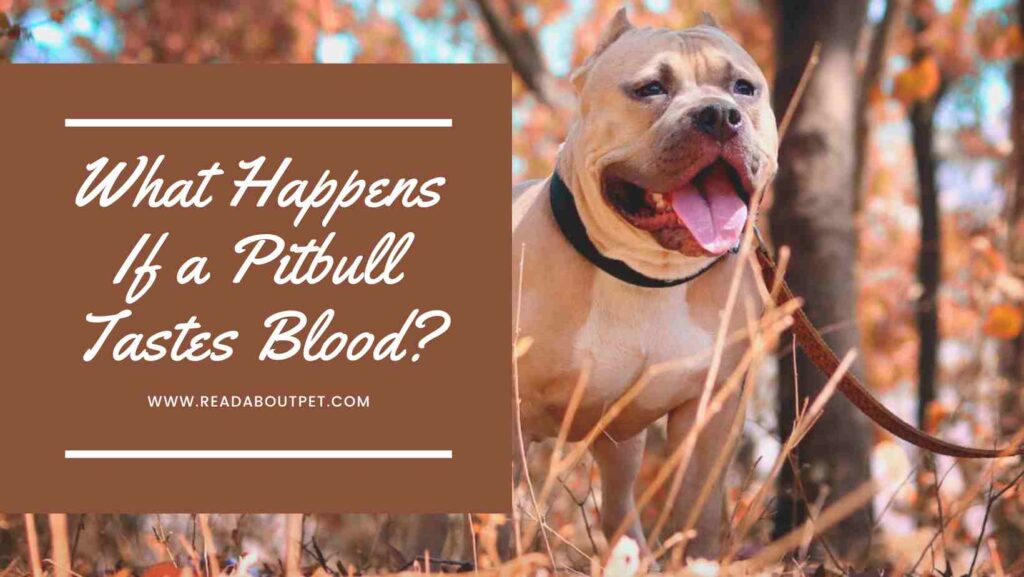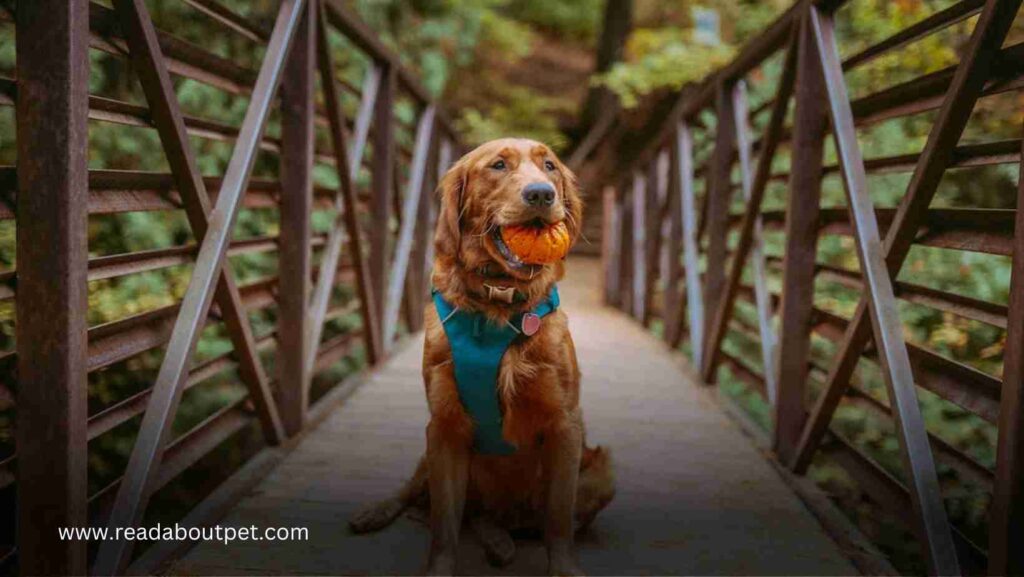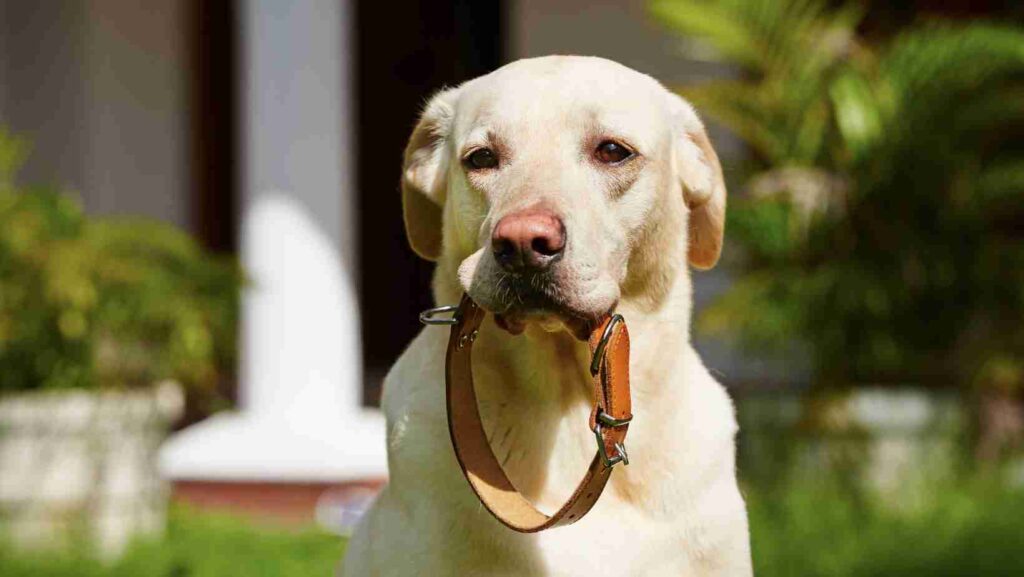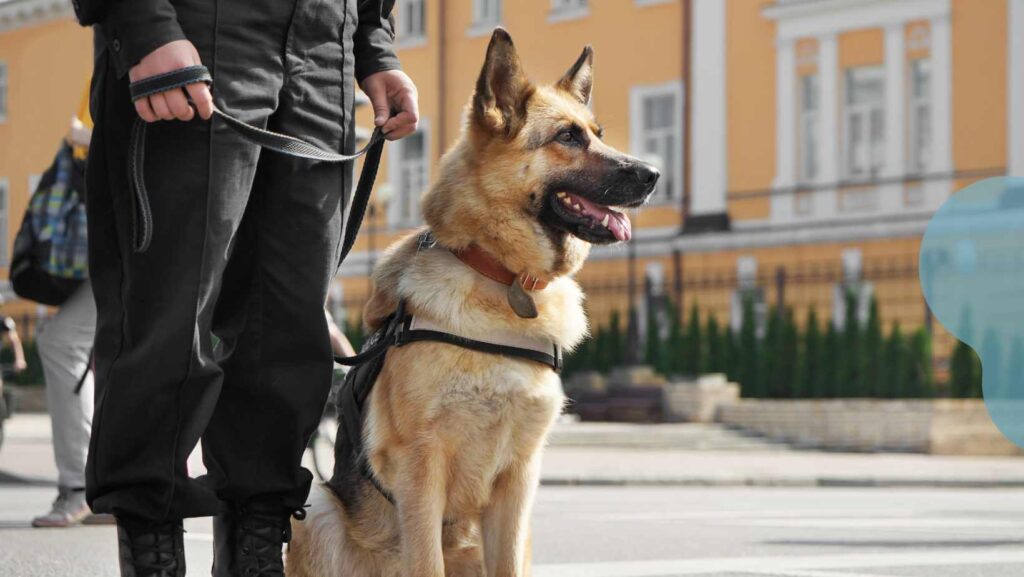Introduction
Pitbulls have been a controversial breed with a reputation for aggression and violence. However, Pitbulls are known for their affectionate and loving nature towards their owners. In this article, we will explore the science behind Pitbulls’ loving behavior, the role of socialization and training in shaping their temperament, and how Pitbulls compare to other dog breeds regarding their affection. We will also address common misconceptions and stereotypes about Pitbulls and share heartwarming stories of their loyalty and love. This blog aims to shed light on the often-overlooked affectionate nature of Pitbulls and promote a better understanding of the breed.
What Makes Pitbulls So Affectionate?
Pitbulls are known for their affectionate nature, and several factors contribute to this trait. One of the most important is their genetic makeup. Pitbulls are a crossbreed of various terrier and bulldog breeds, resulting in a unique, loyal, and loving temperament towards their owners.
Additionally, socialization plays a key role in shaping a pit bull’s behavior. Exposing pitbull to various people, animals, and environments during their early development helps them learn appropriate behavior and social cues. This can help them become more confident, friendly, and affectionate towards humans and other animals.
Moreover, Pitbulls are highly trainable and respond well to positive reinforcement training methods. This means they can easily learn new behaviors and commands, which can help them develop good habits and strengthen their bond with their owners.
In summary, Pitbulls’ affectionate nature is influenced by their unique genetic makeup, the impact of socialization, and their ability to be trained. By understanding these factors, we can better appreciate and promote the loving behavior of Pitbulls.
Pitbulls vs. Other Breeds: How Do They Compare in Affection?
Regarding affection levels, Pitbulls stand out from other dog breeds. While all dogs can be affectionate, Pitbulls are known for their unique loyalty and loving behavior toward their owners.
Compared to other dog breeds, Pitbulls strongly desire to please their owners and often go to great lengths to show their affection. They have a reputation for being “velcro dogs,” meaning they want to be near their owners at all times and crave physical touches, such as cuddling and licking.
One of the reasons why Pitbulls stand out in terms of their affectionate behavior is their ability to form strong bonds with their owners. They are highly intuitive and can pick up on their owner’s emotions, providing comfort and support during stress or anxiety.
Additionally, Pitbulls have playful and energetic personalities, making them great companions for outdoor activities and bonding experiences. Their passion for life is infectious and can help bring joy and happiness to their owners.
While many affectionate dog breeds exist, Pitbulls’ unique loyalty, desire to please, and intuitive nature make them stand out.
The Science Behind Pitbulls’ Affectionate Behavior
Pitbulls’ affectionate behavior is not just a result of their training or socialization – their biology also influences it. Research has shown that Pitbulls, like other dogs and humans, produce hormones like oxytocin associated with bonding and social behavior.
Oxytocin the “love hormone” because it plays a key role in maternal bonding and social attachment. When Pitbulls interact with their owners, their brains release oxytocin, creating a feeling of love and trust between the dog and their human companion.
Moreover, the breed’s brain is for love and loyalty. Pitbulls have a high level of intelligence and a strong desire to please their owners, linked to their ability to form strong emotional connections. The breed’s brain is also highly sensitive to social cues, making them adept at understanding their owner’s emotions and responding accordingly.
In summary, the science behind Pitbulls’ affectionate behavior is complex and multifaceted. The breed’s production of hormones like oxytocin, coupled with their intelligent and social nature, helps them form strong emotional bonds with their owners, leading to their loving and loyal behavior.
The Importance of Socialization and Training
Socialization and training are crucial in shaping a pitbull’s behavior, including its affectionate nature. Socialization helps Pitbulls develop social skills and positive associations with people, animals, and various environments, making them more confident, friendly, and affectionate towards their owners and others.
Training also plays a key role in shaping a pit bull’s behavior. Positive reinforcement training methods, such as good rewarding behavior with treats or praise, can encourage Pitbulls to exhibit loving and affectionate behavior towards their owners. These methods can also help Pitbulls learn appropriate behavior and develop good habits, strengthening their bond with their owners.
Moreover, socialization and training can help Pitbulls overcome negative stereotypes and misconceptions associated with their breed. By exposing Pitbulls to various people and situations, owners can help their Pitbulls become ambassadors for their breed, demonstrating their loving and loyal nature to others.
In conclusion, socialization and training are essential in shaping a Pitbull’s affectionate behavior. Positive reinforcement training methods and exposure to various people and environments can help Pitbulls develop loving and friendly personalities, promoting a better understanding of the breed and reducing negative stereotypes.
Common Misconceptions About Pitbulls’ Affectionate Behavior
Pitbulls are among the most misunderstood dog breeds, with many misconceptions surrounding their affectionate behavior. One of the most common misconceptions is that Pitbulls are naturally aggressive not trustworthy around people or other animals. However, this stereotype is not supported by research and is often perpetuated by media sensationalism and misunderstanding of the breed.
Another common misconception is that Pitbulls are not suitable for families with children. In reality, Pitbulls can be excellent family pets and are famous for their loving and protective behavior towards children. With proper socialization and training, Pitbulls can be gentle and affectionate with all family members, including children.
Moreover, many believe Pitbulls have a “locking jaw” or a special bite force that makes them more dangerous than other dog breeds. However, there is no scientific evidence to support this claim, and Pitbulls do not have any anatomical differences that make them more dangerous than other dogs.
To overcome these misconceptions and appreciate the breed’s loving behavior, one must educate oneself about the breed and its characteristics. This includes understanding the importance of socialization and training and recognizing the unique traits that make Pitbulls loving and affectionate companions.
In conclusion, Pitbulls are loving and affectionate dogs unfairly stigmatized by common misconceptions and stereotypes. By educating ourselves and promoting a better understanding of the breed, we can appreciate and celebrate their unique personality traits and behavior.
Pitbulls as Emotional Support Animals
Pitbulls can be excellent emotional support animals, providing their owner’s comfort, love, and affection. As highly sensitive and intuitive animals, Pitbulls can sense their owner’s emotions and respond with affectionate behavior, such as cuddling or licking.
In addition, Pitbulls’ loyalty and protective nature can make them valuable emotional support animals for individuals dealing with anxiety, depression, PTSD, or other mental health conditions. Their presence can provide security and comfort, helping their owners cope with stress and anxiety.
Moreover, Pitbulls’ affectionate behavior can also help individuals with autism or other developmental disorders. Pitbulls can offer unconditional love and support, helping these individuals develop social skills and improve their well-being.
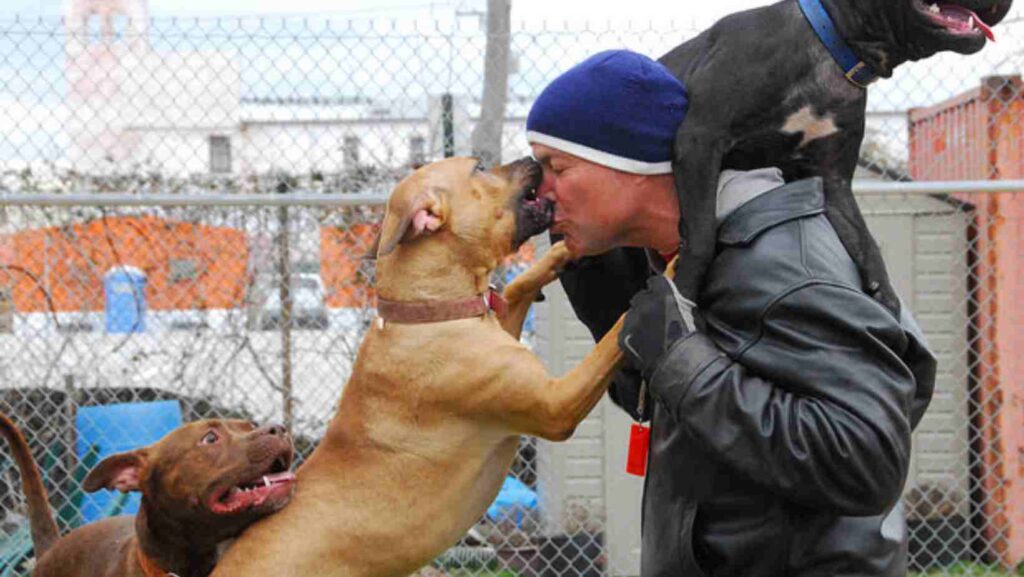
In conclusion, Pitbulls can serve as effective emotional support animals due to their natural ability to provide comfort, love, and affection to their owners. Their loyalty, protective nature, and affectionate behavior make them valuable companions for individuals dealing with various mental health conditions.
Stories of Affectionate Pitbulls
Countless heartwarming stories of Pitbulls displaying their love and loyalty to their owners. Despite the negative stereotypes surrounding the breed, these stories demonstrate that Pitbulls are affectionate and loving dogs that can form strong bonds with their owners.
One such story is that of Lilly, a Pitbull who saved her owner’s life by alerting her family to a gas leak in their home. Lilly’s owner was asleep when the gas leak occurred, but Lilly refused to leave her side and woke her up by licking her face and pawing at her. Lilly’s quick thinking allowed her owner to escape the house before the gas ignited.
Another story is that of Wallace, a pitbull who won the hearts of millions with his incredible athleticism and affectionate personality. Wallace was known for his ability to jump incredibly high and catch Frisbees with ease, but he was also a beloved companion who loved nothing more than snuggling with his owner on the couch.
These stories challenge the negative stereotypes about Pitbulls by highlighting the breed’s affectionate and loyal nature. They demonstrate that Pitbulls are not naturally aggressive or dangerous but loving and affectionate companions who form strong bonds with their owners.
In conclusion, the heartwarming stories of affectionate Pitbulls show that the breed can display incredible love and loyalty towards its owners. By challenging the negative stereotypes and celebrating the breed’s unique traits,we can promote a better understanding and appreciation of Pitbulls.
The Dark Side of Pitbulls’ Affectionate Behavior
While Pitbulls are known for their affectionate and loving nature, their behavior can sometimes be misinterpreted and misunderstood. This can lead to risks for the pitbull and those around them, particularly if the dog is too affectionate with strangers or other dogs.
One risk is that Pitbulls may display overly affectionate behavior towards strangers, which are misinterpreted as aggressive or threatening. For example, a pitbull who jumps up on a stranger to give them kisses and cuddles may be seen as intimidating or scary, even if the dog is just trying to show affection.
Another risk is that Pitbulls may be too affectionate with other dogs, leading to fights or other dangerous situations. While Pitbulls are typically friendly and social with other dogs, their affectionate behavior can sometimes be misinterpreted by other dogs as a threat or challenge, leading to aggression and fights.
Pitbull owners need to understand their dog’s behavior and take steps to ensure that their dog’s affectionate nature is not misinterpreted or misunderstood. This can include training and socialization, as well as careful management and supervision when the dog encounters strangers or other dogs.
In conclusion, while Pitbulls’ affectionate behavior is one of their most endearing traits, it’s important to recognize the potential risks and take steps to ensure the behavior is safe and appropriate in all situations. With proper training, socialization, and management, Pitbulls can continue to be loving and affectionate companions to their owners while avoiding potential risks or misunderstandings.
How to Maximize the Affectionate Behavior of Pitbulls
If you’re a pitbull owner looking to maximize your dog’s affectionate behavior, you can use several tips and strategies to encourage and reinforce loving behavior in your pitbull.
- First and foremost, building a strong bond with your pitbull is important. Spending quality time with your dog, playing, cuddling, and engaging in positive reinforcement training can all help strengthen the bond between you and your dog, leading to more affectionate behavior.
- Consistency is also key. Establishing consistent routines and rules for your pitbull can help them feel secure and confident, leading to more affectionate behavior. Ensure your pitbull gets plenty of exercise and mental stimulation to help them feel happy and content.
- Positive reinforcement training is also a powerful tool for encouraging affectionate behavior in Pitbulls. Rewarding your dog with treats, praise, and affection when they display loving behavior can help reinforce that behavior and encourage it in the future.
- It’s also important to be patient and understanding with your Pitbull. Remember that each dog is unique and may have personality quirks and preferences. Be respectful of your dog’s boundaries and comfort levels, and avoid forcing them into uncomfortable situations.
In conclusion, maximizing your pitbull’s affectionate behavior requires building a strong bond, establishing consistent routines, providing plenty of exercises and mental stimulation, and using positive reinforcement training to encourage and reinforce loving behavior. You can help your pitbull become an even more loving and affectionate companion with patience, understanding, and dedication.
The Role of Breeders and Shelters in Promoting Affectionate Pitbulls
The role of breeders and shelters in promoting loving Pitbulls is critical as these institutions play a significant role in shaping the behavior and temperament of these dogs. Responsible breeders and shelters prioritize socialization and training, helping to ensure that Pitbulls are loving and affectionate companions.
Choosing a Breeder
When choosing a breeder or shelter, it’s important to research an institution that prioritizes socialization and training. Look for breeders and shelters that provide ample opportunities for Pitbulls to interact with people and other dogs. This can help them develop the social skills necessary for affectionate behavior.
Responsible breeders and shelters also prioritize positive reinforcement training, using rewards and praise to encourage desirable behavior in Pitbulls. They also work to identify and address any behavioral issues early on, helping to prevent negative behavior from developing.
It’s also important to choose a breeder or shelter that prioritizes the well-being of their dogs. Look for institutions that provide high-quality care and ensure their dogs are healthy, happy, and well-socialized. Avoid breeders and shelters that prioritize profit over the well-being of their dogs.
In conclusion, the role of breeders and shelters in promoting loving Pitbulls is crucial. Choosing a breeder or shelter that prioritizes socialization, training, and the well-being of their dogs can help ensure that your pitbull is a loving and affectionate companion for years to come.
Pitbulls in Pop Culture: How Media Affects Public Perception
Pitbulls have been a subject of media attention for decades, and how they are portrayed in movies, TV shows, and other forms of media can significantly impact public perception of their affectionate behavior. Unfortunately, the media has often perpetuated negative stereotypes about Pitbulls, portraying them as aggressive and dangerous dogs.
However, there are also instances where the media has portrayed Pitbulls positively, highlighting their loving and affectionate nature. For example, the popular TV show “Pit Bulls and Parolees” focuses on a pitbull rescue center and portrays Pitbulls as loyal and loving companions.
By challenging negative stereotypes and promoting positive ones, movies, and TV shows can help reshape public perception of Pitbulls and their affectionate behavior. They can also help educate the public about the importance of socialization and training in promoting loving behavior in Pitbulls.
In conclusion, the media is critical in shaping public perception of Pitbulls and their affectionate behavior. While negative stereotypes can be damaging, positive portrayals of Pitbulls in movies and TV shows can help challenge these stereotypes and promote a more accurate understanding of this loving breed.
Pitbulls in Society: Advocating for the Breed’s Affectionate Nature
Despite their loving nature, Pitbulls have been treated misunderstood. Advocates are crucial in challenging negative stereotypes and promoting the breed’s affectionate behavior.
Advocates can promote positive stereotypes by sharing heartwarming stories and images of Pitbulls displaying their loving and loyal behavior. This can help change public perception of Pitbulls and highlight their unique personality traits.
Another important role advocates play educating the public about Pitbulls’ affectionate nature. This includes providing accurate information about the breed’s temperament and promoting the importance of socialization and training in shaping Pitbulls’ behavior.
Advocates can also work to change policies that discriminate against Pitbulls, such as breed-specific legislation (BSL). BSL unfairly targets Pitbulls and other breeds and can lead to negative perceptions of the breed.
In conclusion, advocates are critical in promoting Pitbulls’ affectionate nature and challenging negative stereotypes about the breed. By sharing stories, educating the public, and working to change discriminatory policies, advocates can help create a more positive and accurate understanding of this loving breed.
The Future of Pitbulls’ Affectionate Behavior
As research continues to uncover the science behind Pitbulls’ affectionate behavior, there is great potential for further advancements in understanding this unique breed. Future research may shed more light on the genetic and hormonal factors contributing to Pitbulls’ loving behavior and how socialization and training can help shape their temperament.
In the meantime, there are steps we can take to improve the lives of Pitbulls and promote their affectionate nature. This includes advocating for responsible breeding practices that prioritize socialization and training and promoting positive images of Pitbulls in media and society.
We can also work to educate the public about the importance of treating all dogs, including Pitbulls, with kindness and respect. By promoting responsible ownership and challenging negative stereotypes, we can help create a future where Pitbulls are valued and appreciated for their loving and affectionate nature.
Conclusion
In conclusion, Pitbulls are a breed that is often misunderstood and stigmatized, despite their reputation for being loving and affectionate dogs. Through genetics, socialization, and training, Pitbulls can form deep bonds with their owners and provide comfort and support as emotional support animals. Despite their societal challenges, there are many heartwarming stories of Pitbulls displaying their loving nature and challenging negative stereotypes.

